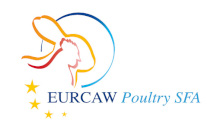Document type: dissertation for BSc at Linköping University Department of Physics, Chemistry and Biology (15 pages)
Author: Sandra Brolin
Preview: Horses are herbivores and can graze for up to 20 hours per day. It is well known that animals are motivated to perform natural behaviours and horses have, except from a physiological need to graze, a strong motivation to perform their natural feeding behaviour. This review aimed to give insight into how horses are kept, how the way they are kept affects their behaviour and welfare, if there are reasons why some horses cannot be kept on pasture, and if alternative feeding strategies can improve horse welfare by allowing horsesto perform their natural feeding behaviour. Most horses are kept in stables and are put on feeding regimes that do not resemble their natural feeding behaviour. This can lead to development of stereotypies, and when prevented from carrying out their feeding behaviour, oral stereotypies such as crib-biting can result. Horses kept free range display very few, if any, stereotypies and is therefore the best way to keep horses from a welfare approach. However, obesity and grass-related illnesses can restrict horses from being kept on pasture, thus, alternative feeding methods for stabled horses is imperative. Use of edible bedding, presenting several types of forage, providing ad libitumforage, or using slow feeders are alternative methods that could be implemented by horseowners and caretakers to improve horse welfare. Horses can however respond differently to these methods and a method that suits one horse might not be appropriate for another.




